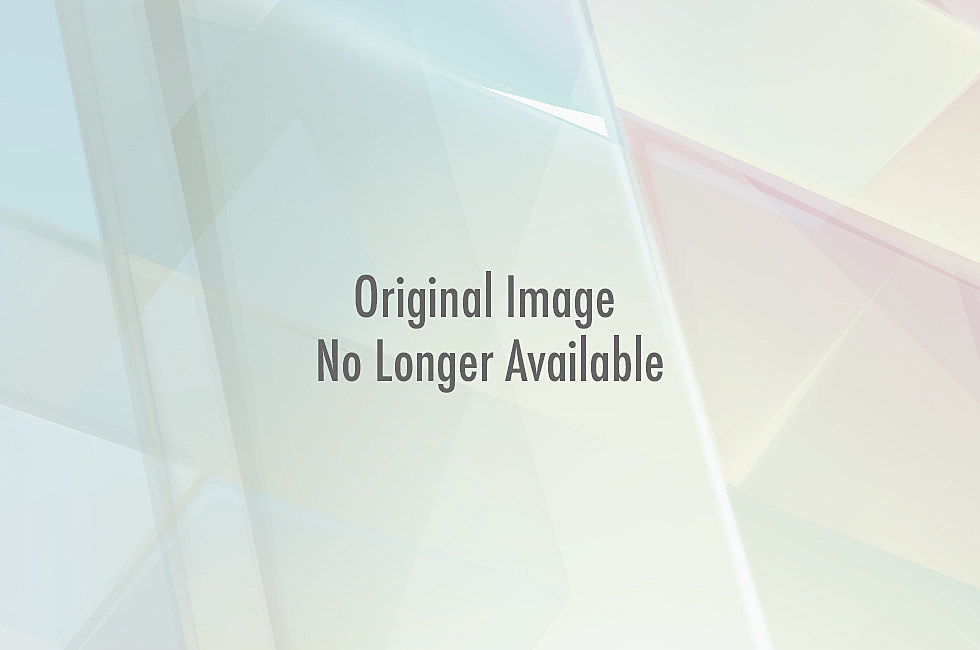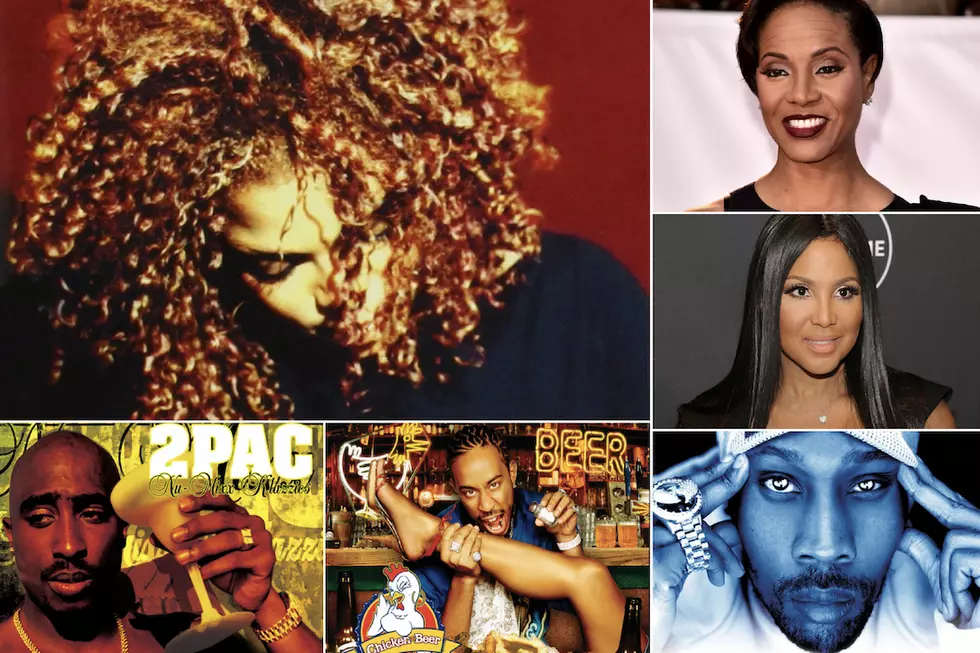
Hip-Hop and Valentine’s Day: Why Rap Makes it Hard to Fall in Love
 Youtube
Youtube
This is a guest post by Jozen Cummings (@jozenc), relationship/dating columnist at the New York Post and creator of the popular blog Until I Get Married.
It's 1993, and I'm walking down the aisle of a local grocery store with my mother. In my head there's an Ice Cube lyric from "It Was A Good Day," which at the time was in heavy rotation.
This particular lyric is my favorite because there is room in it for me to replace Ice Cube's name with my name and for whatever reason, I think now -- with my mother close enough to smack me and a grocery store full of people -- is a perfect time for me to yell the lyric at the top of my lungs.
"Even saw the lights of the Good Year blimp and it said Jozen's a pimp!"
My mother does what any mother should: she smacks me across my mouth. Disgusted, offended and angry as I've ever seen her, she asks me, "Do you even know what that word means?" "No," I mutter as I touch my lips to make sure they are still attached to my face. My mother walks me out of the store, leaving a shopping cart full of grocery stores behind.
We're on our way back home, and when we arrive, she makes me open the dictionary to look up the word "pimp." I don't remember exactly what the dictionary definition was, and I don't think learning it was as effective as my mother hoped. Yes, I understood pimps were social deviants, but in 1993, hip-hop made them look like the coolest thing to be.
Ice Cube was a pimp, so he said. Snoop Dogg said, "we don't love them hoes," on "Gin and Juice." E-40 cautioned against coming to the aid of women in "Captain Save-A-Hoe." Too $hort made me feel like the only life to live was that of a man with not one woman but many in "I'm a Player."
I was 12-years-old when these records came out. I knew very little about women, and even less about love. What I did know was I was a virgin, and in hindsight it's crazy for me to think how uncool that felt, mostly because of hip-hop. These records, which I had to listen to out of earshot from my parents, failed to completely brainwash me into thinking I was something that I wasn't.
But still, they couldn't stop me from wishing I was like those guys I saw on MTV Jams, rapping in their big houses and fancy cars with all those women who seemed to like them flanking their left and right sides. None of the materialism I saw was as alluring as the affection they got from those pretty black and brown women. To me, it looked like those women loved them and I wanted to be loved the same way.
People talk a lot about the lack of respect hip-hop has for women, and history can prove that to be true, but for years all the negative talk about women was just as much about an absence of love. Sure LL Cool J said he needed it, but that moment was fleeting, and everyone who heard "I Think I Need Love" back in 1987 knew he was pandering to his female audience.
My parents were my primary teachers when it came to love, but when you're a teenager, when is listening to your parents ever the move? I listened to rappers, and when it came to love, rappers seemed to have the best motto about it, which was to forget about it.
Rappers weren't teaching me to hate women so much as they were teaching me to avoid getting played by them. Women, in their eyes, were always up to no good, and falling in love them was only going to be a sucker move. No one wanted to be the guy Too Short was talking to at the end of "The World Is Filled..." from Notorious B.I.G.'s Life After Death album.
We all know the language rappers used to describe women and talk about women was venomous and damaging to a lot of women, but it had an indelible effect on the male psyche as well. Contrary to what some people may say, rappers didn't teach men to hate women, they taught us to hate love and be cynical about women. Women weren't the fairer sex. They were just sex and if we loved anything, let it be that.
But love their mind, their soul, with all our heart? That's not what players did, and they seemed to be smarter for it. All the singers, from Jodeci to Boyz II Men, sounded so sad, "Feenin'" for their woman or down "On Bended Knee" in an attempt to get them back. Who wanted to be those guys?
Rappers seemed like the guys who were having all the fun, and from afar, it looked like the best way to avoid tears over a woman was to care about her as little as possible. And female MCs weren't making things any easier.
MC Lyte was screaming about how she needed a "Ruff Neck," to which my step-dad said to me, "Don't go out there trying to be like one of those guys she's rapping about." And Lil Kim's request for cunnilingus on "Not Tonight" (among other songs of her) was not only unreasonable, it went against the words of DJ Quik who said no man should ever do such a thing on the misleadingly titled "Can I Eat It?"
If anything, the female rappers wanted men who were either able to afford them nice things or put in long hours on the corner. I had no means to do the former, and I had no desire to live the life of the latter. So I just went about my business, trying my best not to love these girls.
But by the late 1990s, hip-hop started to become more a business endeavor and less an artistic one, and the tune of popular rap songs slowly started to change. Rappers were becoming more emotionally available, as they crafted sixteen bars of heartbreak.
Yes, they were still angry, but they turned down the volume and started focusing more on the one who got away instead of lumping all women into one group of bad people. There were songs like Jay-Z's "Song Cry," OutKast's "Ms. Jackson" and ironically, the song that put The Roots on the mainstream map was a rap love song, "You Got Me."
All of this started happening around the turn-of-the century -- 2001, 2000, and 1991 --respectively. Coincidentally this was around the same time I too started growing up. I had been in love once in high school, and now I was hearing songs I could relate to about it on the radio.
These days, a rap love song is nowhere near the commodity it once was. Every rapper has one, and sure they may shrug it off by calling it the designated "chick track," but it gets them absolutely nowhere to treat it as such.
How we got here, whether it be natural maturation or financial gain, doesn't matter. I'm grateful to hear guys open up a little bit more about what they've really been through. The prevalence of rap love songs hasn't made hip-hop less soft. If anything, it's actually strengthened artistically by rappers who've learned to emote without necessarily singing.
Artists like Drake, who can pull off melodic rhyme structures will always use such a skill to their advantage. But maybe we should see such choices as simply utilizing their gifts to their fullest extent instead of pandering to sensitive thugs.
For my money, there's not one record Kanye West sang on 808s & Heartbreak that was more heartfelt than what he rapped on "Blame Game" from My Beautiful Dark Twisted Fantasy. Last year Nas delivered Life Is Good, arguably his second best album after his 1994 debut Illmatic, and unquestionably his most emotional one with songs like "Bye Baby" tackling his difficult time going through a divorce.
And Jay-Z, the man who once rapped, "I make the best bitch see the exit," is very happily and very publicly married. Sure he's referred to his wife Beyonce by another b-word, but before he even put a ring on it, he proudly, let the world know in "PSA," that not only was she the baddest chick in the game, she was also wearing his chain.
Some may see the way Jay-Z refers to his wife as just another case of trophysizing a woman. But there will never be a time when a man doesn't want to reflect his good taste by putting a woman who adores him on display. As a matter of fact, there was a time when rappers were doing it excessively: That year was 1993!
Rap still has a misogyny problem, and many rappers are still speaking ill about women, but at least now we can say it's the rappers themselves who need to grow up, and not the entire rap genre.
A lot of the best rappers these days either are in love or have been in love, and they're not afraid to rap about it.
More From TheBoombox









